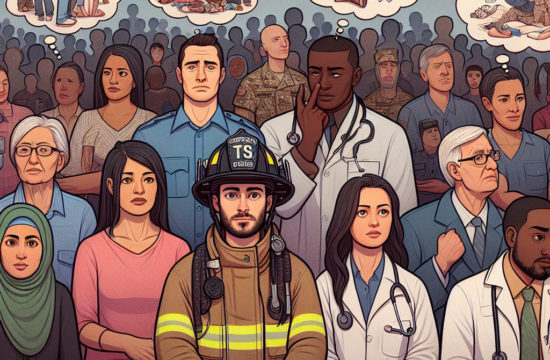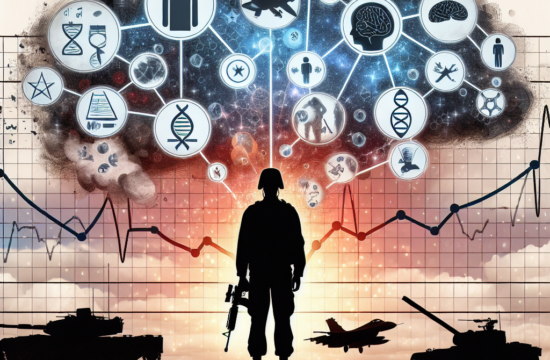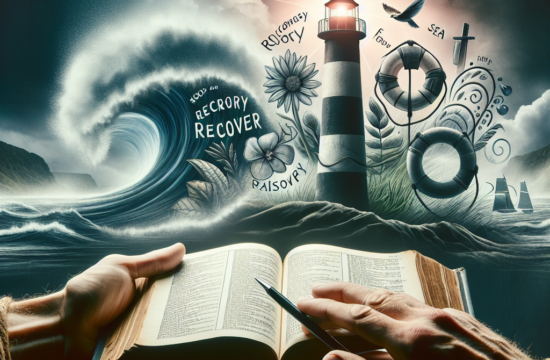Get Started with Recovery! Visit us for more Information and Support
==> Thank you for reading this post! Click Here If you are looking for support and Victory over PTSD.
The Truth About Emotional Trauma Recovery for Veterans
- Understanding Emotional Trauma in Veterans
- Common Stages of Recovery
- The Role of Support Systems
- Tools and Techniques for Healing
Understanding Emotional Trauma in Veterans
What is Emotional Trauma?
Emotional trauma can hit hard, especially for those who have served in the military. It’s not just a feeling in the pit of your stomach; it can interfere with your daily life. From flashbacks to feelings of isolation, emotional trauma brings a whole bag of challenges. For veterans, this trauma often stems from combat experiences, loss, or even transitioning back to civilian life.
With that said, it’s essential to recognize that trauma is highly individual. What may be a deep wound for one person might not faze another. Knowing what emotional trauma means for you or for a veteran you love is the first step in the healing journey.
It’s also vital to break the stigma around discussing trauma openly. Many veterans fear being seen as weak or incapable when they talk about their emotional struggles. But I firmly believe that discussing trauma only strengthens resilience.
How Does Emotional Trauma Manifest?
The signs of emotional trauma can be subtle or glaringly obvious. Some might experience mood swings or heightened irritability, while others might feel detached from their surroundings. You’ll see symptoms like anxiety, depression, or even physical issues like chronic pain that can be traced back to emotional distress.
These manifestations can often lead to barriers in seeking help. As a community, we need more conversations around what trauma looks like and how it affects our veterans. It fosters understanding and compassion, creating an environment where veterans can feel safe to share their experiences.
Connecting with a veteran who has faced similar challenges can provide invaluable insight. Sharing stories creates a bond, and most importantly, it reassures veterans that they’re not alone in their struggles.
The Importance of Recognition and Validation
Recognition of trauma is crucial for recovery. Many veterans don’t even realize they’re dealing with emotional trauma. Once individuals start recognizing the symptoms, they can begin their journey toward healing.
Validation from loved ones can make a world of difference. When veterans share their experiences and their families acknowledge their pain, it empowers them. It’s extremely important to reinforce that healing takes time and that it’s okay to seek help.
Being there for someone who suffers from emotional trauma means listening without judgment and offering support. Just being available can help them feel less isolated, and that in itself is a monumental step toward recovery.
Common Stages of Recovery
Understanding the Recovery Process
Let’s just say, healing doesn’t come with a map or timeline. It’s like hiking a mountain trail—you may start on a clear path, but then it might lead to rocky terrain. The emotional recovery process typically includes stages: shock, denial, anger, bargaining, depression, and acceptance.
Each of these stages can be revisited multiple times, and that’s perfectly normal. As someone who has explored these stages, I can tell you that it’s essential to be gentle with yourself throughout this journey. Recognizing your current stage can provide clarity on the next steps.
It’s also important to remember that this isn’t a linear experience. You may make great progress and suddenly feel like you’ve taken several steps back. Positivity and perseverance are key.
The Role of Professional Help
Okay, can we just agree that reaching out for help is a sign of strength? Many veterans find that consulting with a mental health professional provides the guidance and tools they need to navigate their trauma. Therapy can vary from cognitive-behavioral therapy to more unconventional approaches like art or music therapy.
Psychologists and counselors can offer a safe space, allowing veterans to express feelings they might not feel comfortable sharing with loved ones. Some might even consider group therapy as a way to connect with others going through similar experiences.
In my experience, finding the right therapist can often be trial and error, but it’s well worth it. Having someone who can help you sort through your feelings is invaluable.
Building Resilience
In every tough situation lies an opportunity for growth. The mindset of building resilience can be transformative. Through self-compassion and awareness, veterans can navigate emotional turmoil and bounce back stronger.
One beneficial practice is to focus on gratitude. It may sound cliché, but writing down things you’re thankful for can shift your focus to the positive aspects of life. It’s all about re-training the brain to see the glass half full.
Lastly, multiple veterans find solace in physical activities or hobbies. Whether it’s hiking, painting, or yoga, engaging in enjoyable activities can create a positive outlet for emotions.
The Role of Support Systems
The Importance of Social Connections
You know the saying, “It takes a village”? Well, I believe it takes a whole community when it comes to healing emotional trauma. Leaning on friends and family can greatly benefit veterans during recovery. Social connections can combat isolation, bringing laughter and warmth during darker times.
Personal storytelling sessions with close friends can also foster deeper connections. Sharing experiences not only nurtures relationships but also reminds veterans that they don’t have to walk this journey alone.
Being part of a community can provide sense of belonging. Whether it’s veteran organizations or local support groups, knowing that there are people who genuinely get what you’re going through can bring comfort.
How Friends and Family Can Help
My heart goes out to family and friends striving to support veterans. It’s crucial to be informed about emotional trauma and its signs. This knowledge allows loved ones to recognize when a veteran is struggling and how to approach them.
It’s all about creating a judgment-free zone—some veterans need that space to share when they’re ready. No pressure, just unconditional love. Sometimes, the smallest gestures, like checking in via text or surprising them with coffee, can mean the world.
Additionally, encouraging them to seek outside help and being open about your own struggles can foster openness and encourage veterans to share their feelings without fear or shame.
Peer Support Groups
Peer support groups offer a fantastic, relatable space for veterans. They allow individuals to connect with those who truly understand their situation. Hearing stories and sharing experiences remove the feelings of isolation and serves as a strong reminder that recovery is possible.
Support groups often provide coping strategies and resources that veterans can use outside the meetings. The bond created often carries on beyond the group setting, cultivating deep friendships that aid in the healing process.
Moreover, group discussions can normalize feelings and emotions that veterans might otherwise struggle with. Validation is crucial, and peer groups can certainly provide that.
Tools and Techniques for Healing
Mental Health Resources
The resources available today might shock you. From apps designed for mindfulness to online therapy sessions, technology has made mental health support more accessible than ever.
I recommend connecting with veterans’ organizations that focus on mental health. They often host workshops and educational sessions where veterans can learn about coping mechanisms and tools for healing.
Whether it’s journaling, meditation, or guided imagery, using these resources can significantly assist in regaining control and clarity when experiencing emotional turbulence.
Physical Health as a Foundation for Emotional Healing
You’ve probably heard that mind and body are connected. Physical health is an essential foundation in the recovery process. Regular exercise can release endorphins—those lovely feel-good hormones—and help mitigate symptoms of trauma.
Nutrition also plays a crucial role; a balanced diet helps maintain energy and mood. Little changes like cooking at home instead of eating out can create healthier habits that benefit both body and mind.
Many find practices like yoga and tai chi beneficial. These exercises not only strengthen the body but also promote mindfulness, helping individuals reconnect with themselves.
Creative Outlets
You might be surprised by how transformative creative outlets can be. Painting, music, writing—these activities aren’t just hobbies; they’re therapeutic tools for exploring and expressing emotions.
When I started taking art classes, I realized how much I’d bottled up inside. Channeling emotions into creativity felt like a weight lifting off my shoulders. There’s no right or wrong way to express yourself through art, which makes it a fantastic option.
Getting involved in creative communities can also foster support and friendship, adding another layer to the healing process. It’s all about finding what opens your heart and helps you process your emotional trauma.
FAQ
What are the first signs of emotional trauma in veterans?
Emotional trauma can present itself through various signs, including mood swings, anxiety, depression, or even withdrawal from social activities. Veterans might also experience physical symptoms, such as chronic pain or fatigue.
How long does the emotional trauma recovery process take?
The recovery process is highly individual and can vary widely among veterans. It may take months or even years to navigate through the different stages of trauma recovery. The important thing is to be gentle with yourself and seek help.
Are there community resources available for veterans?
Absolutely! Many organizations focus on veterans’ mental health, offering support groups, counseling, and workshops tailored for veterans and their families. A simple online search can help you find resources nearby.
What role does therapy play in emotional trauma recovery?
Therapy plays a crucial role in emotional trauma recovery by providing a safe space to express feelings, develop coping strategies, and process experiences. A professional can help guide veterans through their healing journey with the right tools and resources.












